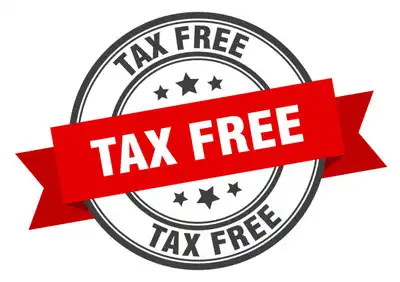Who Pays TAX in South Africa?

Individuals who earn taxable income (from a salary, commission, fees, etc.), subject to various exemptions and rebates, are typically those who pay income tax. Tax paid by businesses or related corporations on their yearly income is referred to as corporate tax. Both insolvent and deceased estates are subject to taxation on their income. Even though indirect taxes, primarily the Value-Added Tax, account for nearly a third of all national government tax revenue, the majority of the State’s income comes from income tax (personal and corporate tax) (VAT).
How Does Taxation Works In South Africa?
Residents of South Africa are subject to local taxes on income earned anywhere in the world, while non-residents are only subject to local taxes on income earned within the country. The majority of the state’s income comes from personal and corporate taxes, with 23.9 million of its 59 million residents paying taxes. However, indirect taxes like the value-added tax do make up close to a third of the government’s revenue.
Who Is Mandated To Pay Tax In South Africa?
If you are a permanent or temporary resident of South Africa, you must pay taxes. This means you must have lived in South Africa for more than 91 days in each of the last five tax years. There are exemptions to these rules, for example, if you are elderly or make under a certain amount annually.
Who’s Exempted?
The South African tax system was “source-based” prior to 2001, meaning that income was taxed in the nation from which it came. Since January 2001, the tax code has been “residence-based,” meaning that taxpayers who live in South Africa must pay taxes on all of their income, regardless of where it comes from. Only domestic taxes apply to non-residents. This means Non-residents are exempted from Paying Taxes.
The Major Taxes in South Africa
Revenue Tax/ Income Tax: You must pay income tax on all of your earnings. Whether you are a person, a business, or a trust, this is true. The Income Tax Act also governs a number of additional tax types, such as: monetary gains Tax, Provisional Tax, Pay As You Earn Tax, and Donations Local businesses pay 28% in taxes, while individuals pay 18% and 45% in taxes and Trusts (other than special trusts) pay 45% in taxes on their profits.
- How to Sell Old Coins For Cash in South Africa.
- What Are The Requirements For (PDP) in South Africa?
- Where Can I Study Real Estate in South Africa?
- How Was Apartheid Practiced In South Africa?
- When Was Heritage Day First Celebrated In South Africa
- Where to Buy Roller Skates In South Africa
- How to Withdraw Money From Swiffin in South Africa?
- How Long Does Mie Check Take In South Africa?
- How Can We Prevent Drought In South Africa?
- Who Won The Elections In South Africa In 2019?
Valuation Added Tax (VAT): Value Added Tax is charged at a standard rate of 15% on all goods and services
Excise and Customs Taxes: Imported goods are subject to customs fees with the intention of increasing revenue and defending the domestic market. On the following consumables are assessed excise duties and levies: Petroleum, alcohol, tobacco, and other luxury or non-essential items (such as electronic equipment and cosmetics).
Turnover tax: Is a type of tax that is determined by a business’s turnover rather than by a percentage of profit, or income less business expenses, as is the case with typical business tax.
Dividend Tax: When dividends are paid to beneficial owners, such as shareholders for corporations and members for close corporations, a tax known as the Dividends Tax is levied.
Did you know that there is a donation tax?
Donations from taxpayers are exempt from tax up to R100,000 per year. These donations have to be made in kind or cash.
The majority of the state’s income comes from personal and corporate taxes, with 23.9 million of its 59 million residents paying taxes. However, indirect taxes make up close to a third of the government’s revenue. South Africa’s tax code is “residence-based,” meaning that taxpayers who live in South Africa must pay taxes on all of their income, regardless of where it comes from. Local businesses pay 28% in taxes, while individuals pay 18% and Trusts (other than special trusts) 45%.
Share This





